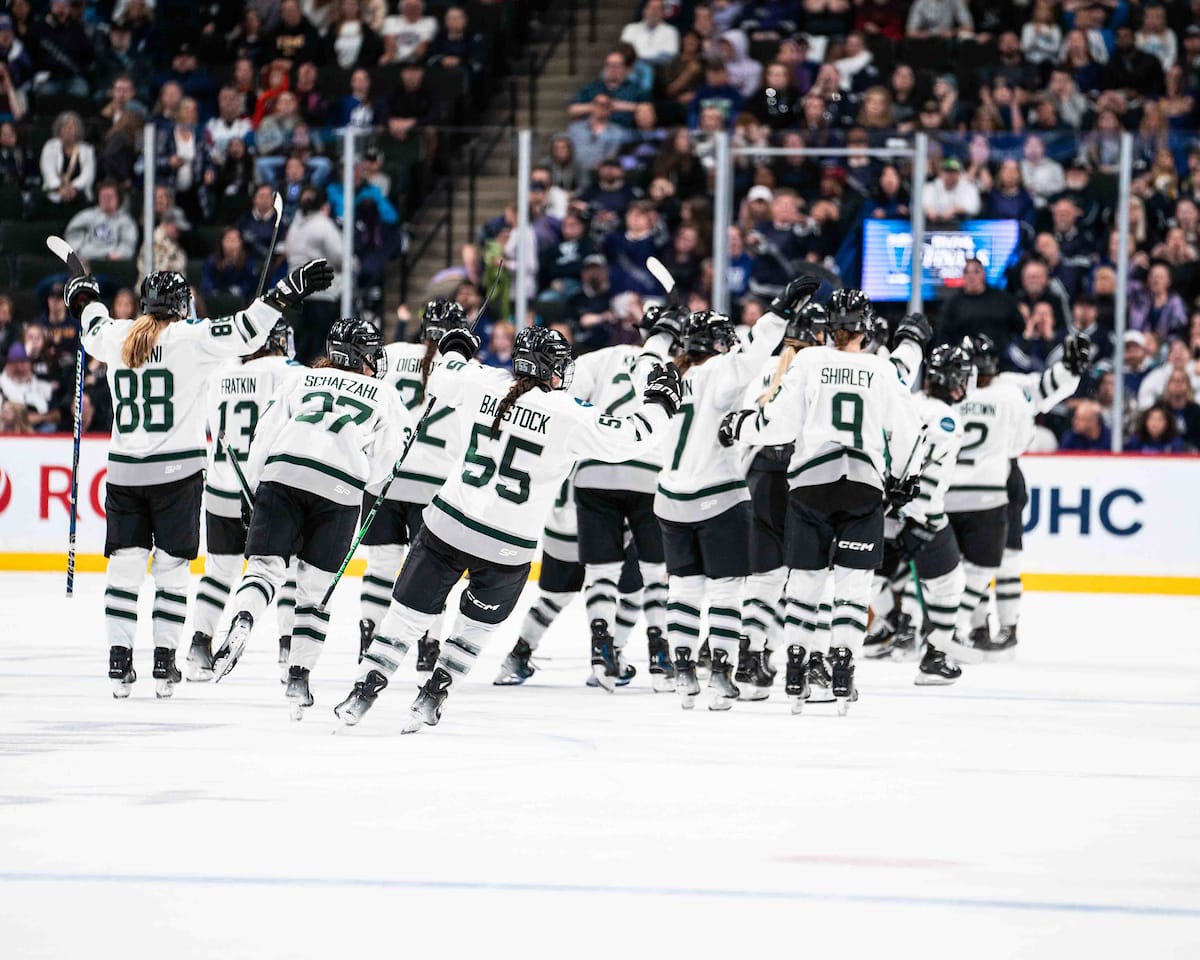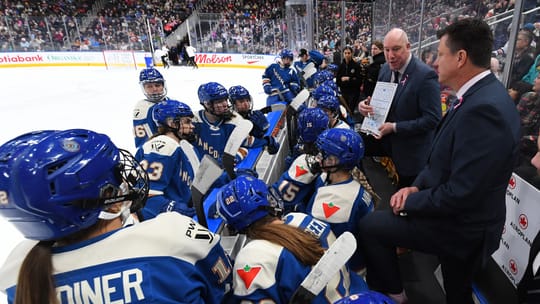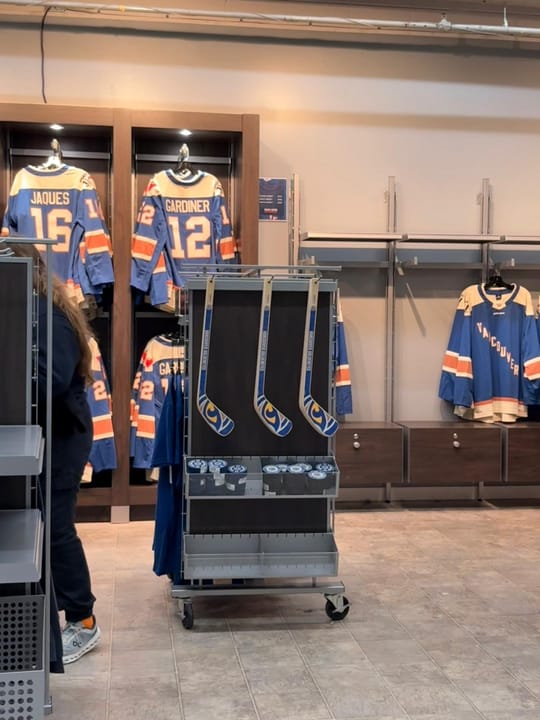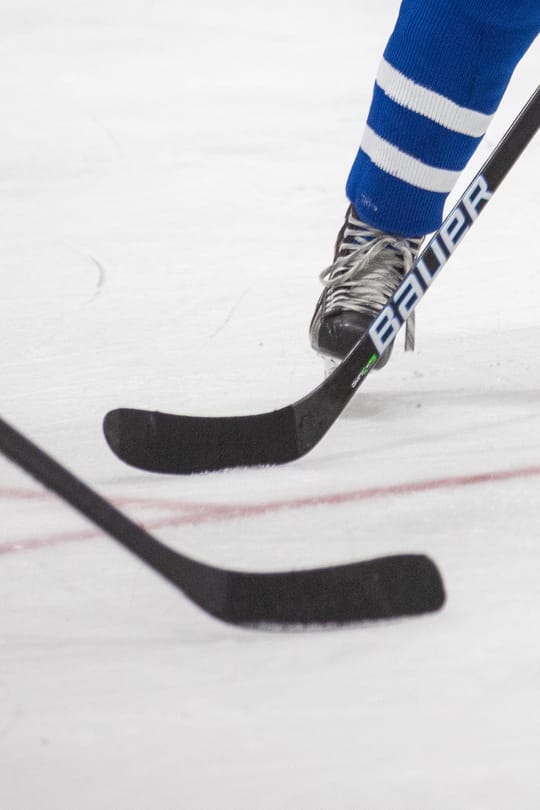The Walter Cup was in the building, but it would have to settle in for a long wait. Boston has now won all four overtime contests they've played in this postseason – this one, with almost two complete OT periods. There was a close call in this one, but it's going back to Lowell for a decisive fifth game.
What happened?
It was about what you would expect from a playoff championship elimination game in this league. That is to say, it delivered, from both sides. It's special to see two teams so evenly matched in this league competing in the Finals. There was not a high volume of shots, but the shots that did get through were usually quality opportunities created with intent and skill. It was evenly matched and remained scoreless through 98 minutes and 36 minutes.
Some snapshots:
- In the first period, a wide-open 4-on-4 sequence initiated by matching roughing penalties to Taylor Heise and Kelly Babstock. Heise also got involved in a bit of an on-ice slow-motion wrestling match with Jessica Digirolamo. Things were a little chippy, as they say.
- Boston had some trouble staying out of the box, even with the whistles mostly being put away, which should say a lot. They were charged with five minor penalties during regulation. Minnesota got their first power play in the second period, early, and while they held possession well, Boston executed a strong penalty kill, getting sticks in lanes and making sure Minnesota didn't have an extra split-second to execute. It was confident. On other PK shifts, they held Minnesota to the outside, and when they couldn't keep the puck away from Aerin Frankel she was stopping it and freezing it. Boston weathered the storm in the second period and got back-to-back quality chances on Nicole Hensley from their third and fourth lines.
- There were 13,104 fans in the building at Xcel Energy Center, and they were loud. It was at the point late in the second period where you couldn't hear whistles over the crowd. The referee had to blow three times for a tripping call on Michela Cava. Minnesota went back on the hunt on the penalty kill, with Kelly Pannek taking the puck into the offensive zone and feeding Grace Zumwinkle driving the net. Zumwinkle stayed on it and the puck somehow didn't go in off of the post behind Frankel. At the other end, Hilary Knight almost scored on a chance in tight. Boston's power play would extend through to the end of the period, but couldn't get through to Hensley again before the clock expired.
- Minnesota had the run of play in the third period, but the more they tested Frankel the more she rose to the occasion, holding onto rebounds and limiting Minnesota's options.
- 60 minutes wouldn't be enough, and overtime was hard to look away from. Boston had the better chances in the early minutes of the overtime, but Minnesota generated chances as well. The most stunning sequence was probably Sophie Jaques walking in and cutting to the middle, shaking off Loren Gabel and getting a shot off, but Frankel made the save. Zumwinkle and Coyne Schofield also both had chances off the rush – again denied by Frankel.
- The second OT proceeded much as the first had, with chances at both ends and great saves by both goaltenders. It looked like it was going to potentially go to a third OT, but first Sophie Jaques had something to say about it off the rush. She put the puck in on a rebound chance from Taylor Heise who was driving the net – but Heise also took herself right to the net at a sharp angle and crashed into Frankel, who was not able to properly attempt a save on the play. Minnesota was celebrating – equipment everywhere, swarming around Sophie Jaques – but the goal was reviewed, and on replay, it seemed pretty obvious that it should come back. While Sidney Morin did make some stick-on-stick contact with Heise, this happened while Heise was already falling into Aerin Frankel. The review confirmed that it wouldn't be a good goal. Minnesota had to play on.
THE CALL IS OVERTURNED 😱
— TSN (@TSN_Sports) May 27, 2024
Sophie Jaques scores but the goal is overturned for goaltender interference.
PLAY ON.#PWHL pic.twitter.com/qHXE4Qc8di
- "I knew we were gonna get it," Alina Müller said to Raegan Subban on the broadcast about the momentum shift after the goal was called back. And get it she did, within two minutes of play resuming. Müller herself created a turnover high in the zone, closing on Kendall Coyne Schofield along the boards as she tried to break out. The puck popped out to Theresa Schafzahl, who found Müller streaking back towards the net. She had bodies all over her, but she was able to get off a wrist shot, picking a corner on Hensley that finally ended the game with just 1:24 remaining in the second OT period. And there wasn't anything to review with that one. After a brief celebration, Boston exited the ice immediately.
ALINA MÜLLER KEEPS BOSTON'S PLAYOFFS RUN ALIVE IN 2OT! 🗣 pic.twitter.com/rbLZ0ORfJv
— PWHL (@thepwhlofficial) May 27, 2024
Three up, three down
↑ Getting the call right – It would have been a perfect ending for Sophie Jaques to win the Walter Cup on home ice in double overtime, but calling the goal back was the right move. Alina Müller said it reminded her of the 2019 IIHF Women's World Championship gold medal game – Tessa Bonhomme said the same on the broadcast. However, unlike the IIHF in 2019, who overturned what probably should have been a good goal, the PWHL got the call right by taking this one back. It certainly wasn't intentional, but Frankel was impeded in her own goal crease by Heise, and didn't have an opportunity to make a save on Jaques' shot. "Other than the fact that I was pushed – but I didn't know, like, who pushed me into the net. It kind of just all happened really fast. But then after seeing the replay, I was confident that they would maybe overturn it," Frankel said after the game. "I had no doubt that it was goaltender interference," added Müller.
"It's just one of those things that happens," said Minnesota head coach Ken Klee. "I mean, we had lots of chances to win the game." He's not wrong.
↓ Goals (except for one) – If you love playoff hockey, and the high level of skill in defense and goaltending that is required to win in the playoffs, this was the game for you. On my own social media I called it "lab grade late playoff hockey." In chemistry terms, lab grade means that a substance has a relatively high level of purity, but has not been tested to determine the exact level of impurity, meaning it's suitable for educational applications but not necessarily for food or pharmaceuticals. My point being – you know what you're getting, broadly speaking, but the situation could escalate or de-escalate at any time. Playoff goals are hard to come by sometimes – and that's fine, because eventually, there is a payoff.
"I just tried to put my body against the wall, against the other player trying to break the puck out, and then somehow tried to get inside positioning, and the puck bounced to me. I think it was a good forecheck," said Müller of her OT winner. "And then I tried to get it off as quick as I can as high as I can." Müller was smiling in joy and disbelief throughout her postgame interviews.
"You look at our last series against Toronto, you look at their series against Montreal – you're not seeing very high scoring games," said Kendall Coyne Schofield. "So you've kind of got to expect that. You've got to be okay winning one-nothing. This league is obviously the most competitive league in the world and the goaltenders are phenomenal, all across the league."
Müller's tally exemplified how Boston has been winning games all postseason – they didn't always need to be the more dominant team, they just needed to be the one that found the back of the net at the right moment. It all results from defense and forecheck. And from Aerin Frankel.
↑ Minutes – It was the first overtime game in the Finals, but not the first for either team. Boston played the equivalent of nearly five games in their semifinal sweep of Montreal with each contest going to OT. Minnesota played a five-game series reverse sweep that featured double OT in Game 4. This is the most intense and longest schedule that many of these players have ever played, from a 24-game season to series-based playoffs in quick succession. Minutes are being managed by both benches pretty well, on the whole. Defender Lee Stecklein had 41:48 through 2OT for Minnesota, with Boston's Susanna Tapani leading the way for her team with 40:50 as a forward. Minnesota's 13th forward Brooke Bryant did not get a shift for the third straight game. Boston's extra forward, Kelly Babstock, played a little in overtime and a little in the first period for just 2:00 in ice time. Both teams are generally using their entire lineups in one way or another – which is another indicator of playoff hockey at its finest.
↓ Still no power play goals, but so what? – Neither team has executed on the power play yet in the Finals. I think this really says more about the importance of penalty killing than the importance of power plays – "defense wins championships" after all. I think it also really highlights the difference between regular season hockey and playoff hockey. The urgency is just higher from a defensive perspective, especially in an 0-0 game. Scoring isn't as important as making one-hundred-and-fifty-percent sure that the other team doesn't score, and turning the play around instead. In other words, I'm sure both of these teams would take a perfect penalty kill record over a power play goal any day of the week, especially in May.
↑ "Fuck" – We're all going through the motions of being alive under late capitalism while a genocide is being committed in broad daylight. It's hard to feel like things like this even matter. But hearing/seeing the word "fuck" on live TV can kind of make you feel alive for a few seconds.
I'm not sure the PWHL was thrilled about the word "fuck" making it into a live broadcast interview courtesy of Kelly Babstock, since this is ostensibly family-friendly programming. But I think there's a case to be made here that good sports programming is "all ages" rather than "family-friendly," and part of that is accepting the possibility mild vulgarity – as long as it doesn't cross the line into bigotry or mean-spirited conduct. "Let's fuckin' go" is not a hateful or negative sentiment. The PWHL used a bleep for the word "shit" recently on a "mic'd up" video with Jamie Lee Rattray, instead of editing it out entirely – meaning they aren't necessarily opposed to depicting the reality that sometimes (well, actually, a lot of the time) hockey players use colorful language.
Which is good, because Courtney Kessel's "FUCK YEAH, LET'S FUCKIN' GO" after the OT goal was overturned was easy to distinguish even if you don't read lips.
That's in the director's cut pic.twitter.com/hT3UIVKA8L
— pwhl_ottawa_gifs (@pwhl_ott_gifs) May 27, 2024
Fuck yeah.
↓ No more second chances – Someone's winning on Wednesday and the first PWHL season will be over. If the game is anything like Game 4, they'll be going out on a high note. (Please plan your prayer circle for good officiating, no injuries, and no controversy. I'd say no multiple overtimes, but really, would anything be more appropriate?)
VP's Player of the Game
Susanna Tapani – Leading your team in ice time as a forward is no small task, especially in a game that had so many special teams situations. Tapani's all-around game is just on a different level right now. Of course she's a scoring threat, 3 goals and an assist in 7 playoff games so far (including two overtime winners). But she's also killing penalties and working hard in the defensive zone in general. She directly set up Müller's first playoff goal in Game 3 – and she was a huge part of Minnesota failing to capitalize on their early opportunities in Game 4, which set the stage for Müller's OT winner.
- Game replay link (YouTube) – The PWHL has started posting "condensed game archive" video, after taking their videos private after broadcast as of late. Check their video uploads page for the game archive content as it becomes available. (This game is not yet as of press time.)
- Game data
Game 5 is scheduled for Wednesday, May 29 at Tsongas Center in Lowell, Massachusetts, with a 7:00 PM Eastern start time.
(Photo: Michael Riley/PWHL)







